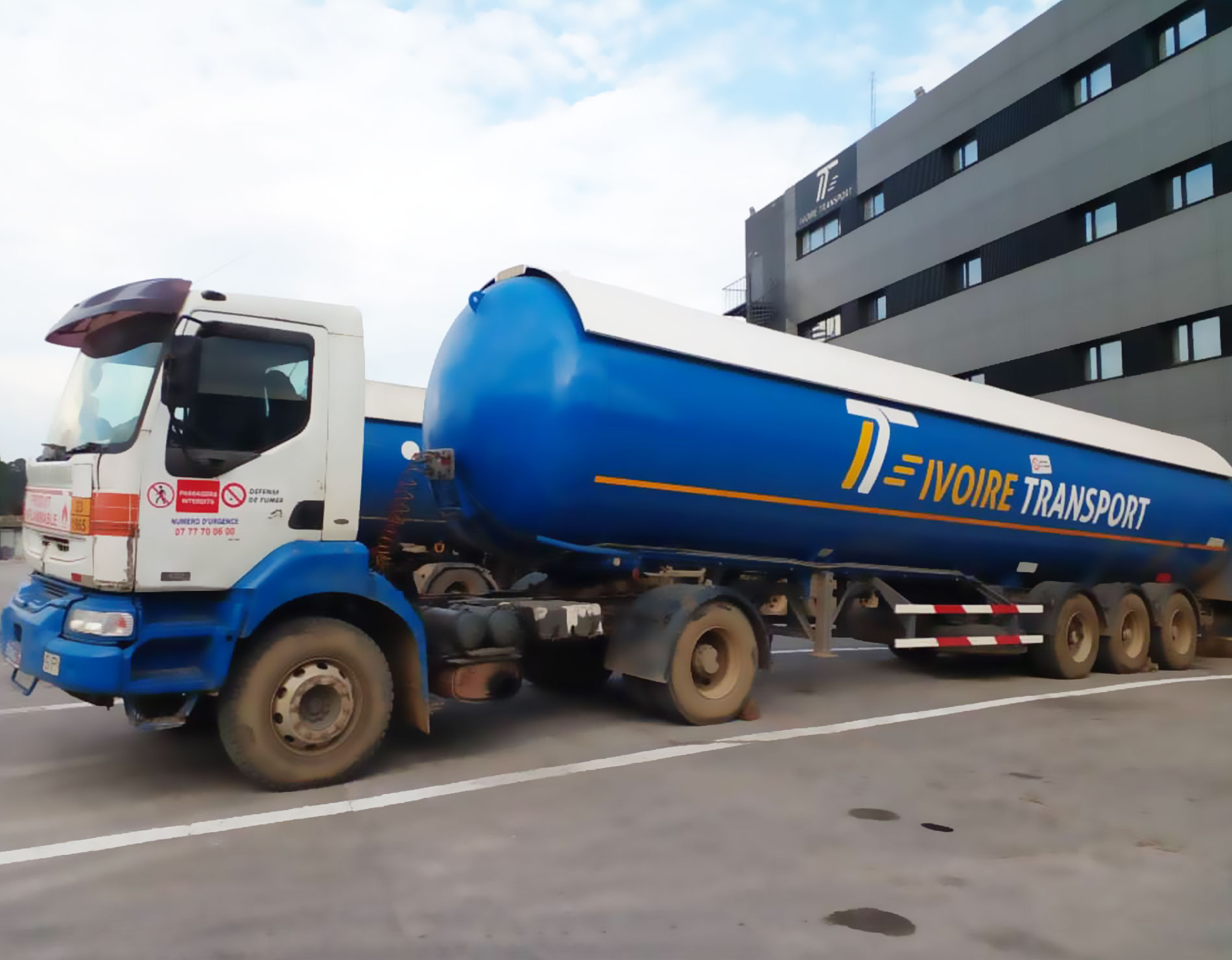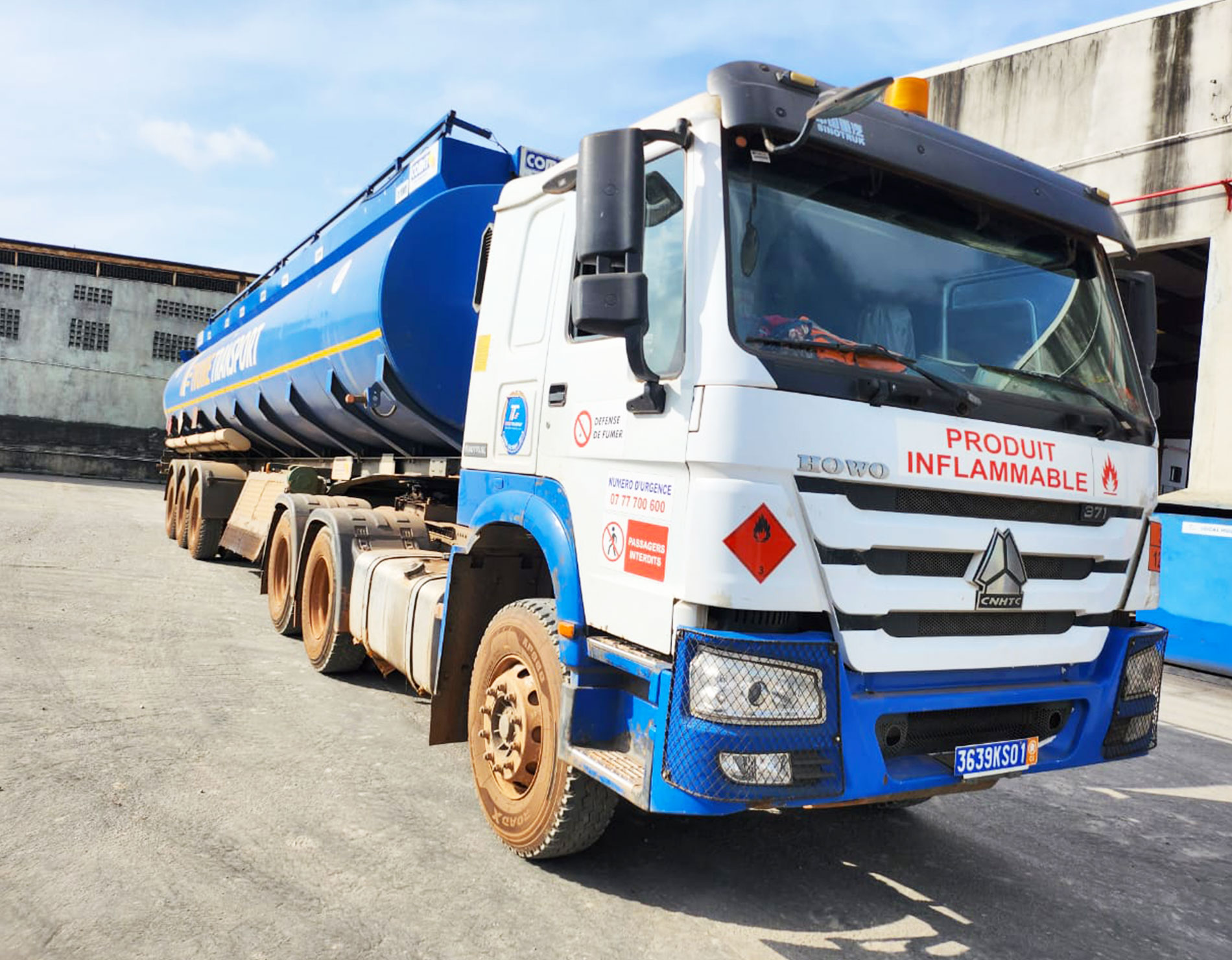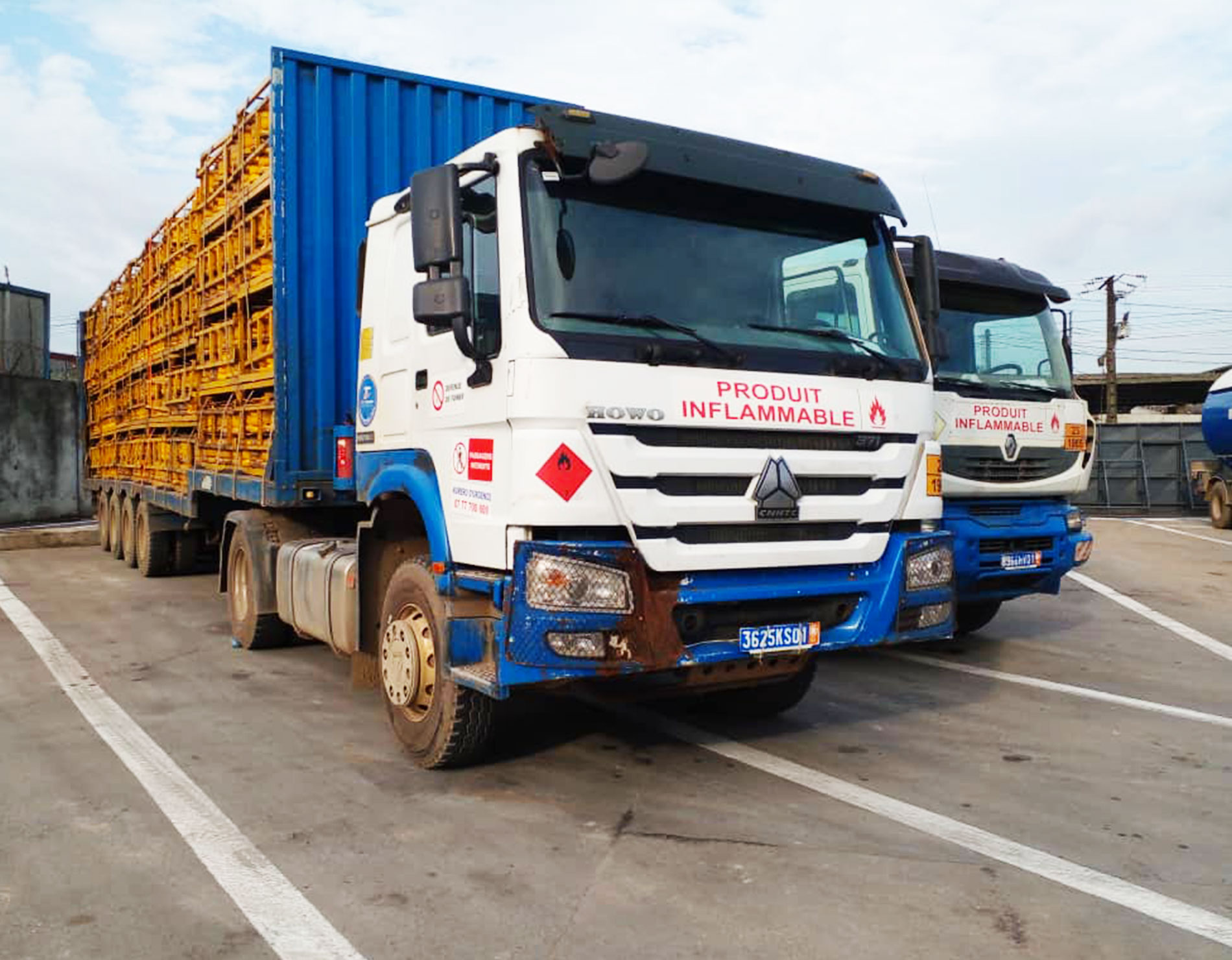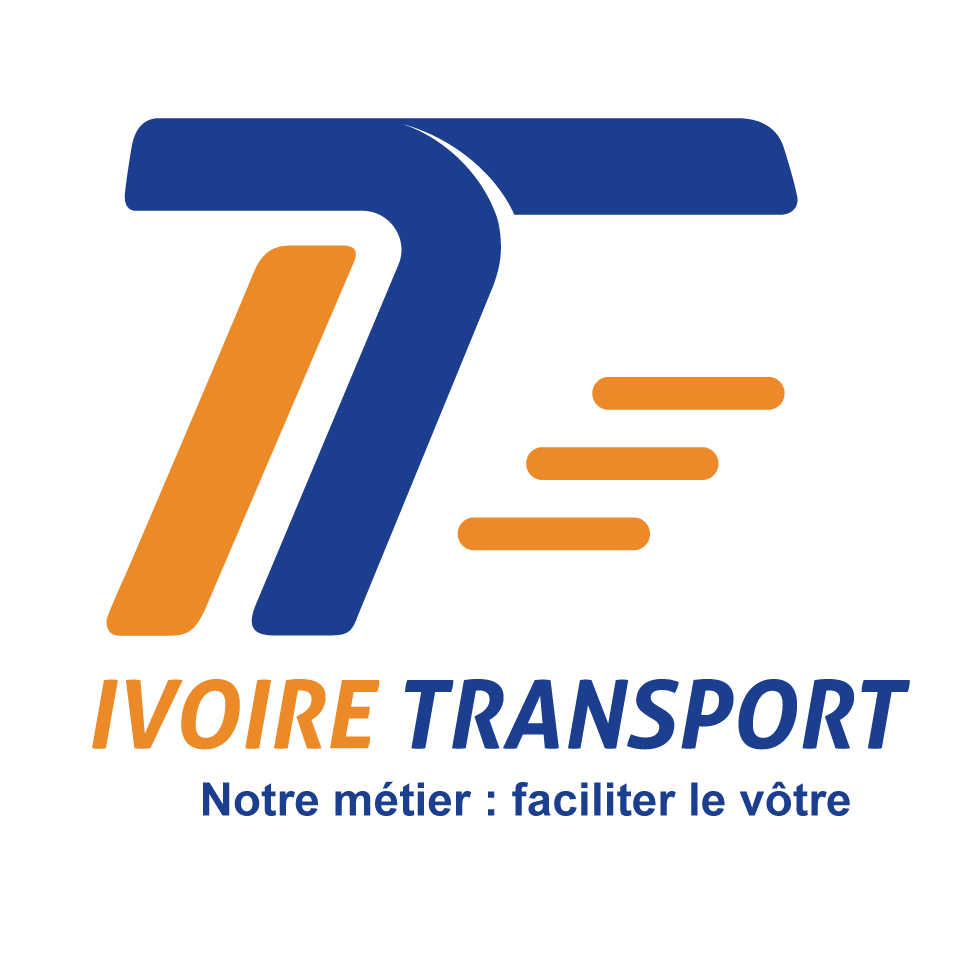
HSE

Safety is at the heart of all our operations
This dynamic is reflected daily in the attention we pay to the training of our people, the maintenance of our equipment and the safety measures put in place to ensure the smooth running of our operations. To this end, before each departure, our lorries undergo a check (inspection) by a mixed team (drivers, mechanics and firemen) to ensure that the lorry is in good mechanical condition, that all the lorry's safety devices are in place, that personal protective equipment is available and that all the administrative documentation is in place. This ensures that the product can be delivered safely and on time.
Our trucks are fitted with beacons, and a team of OBC analysts is fully dedicated to real-time monitoring of the trucks and analysis of crew behaviour at the wheel.
Each long-distance journey is made by a crew of two drivers, both of whom have the same training to ensure that the drivers are well rested on their journeys. Our trucks can only be started when the driver activates the individual key allocated to him. This security arrangement enables the QHSE teams to check in real time and on an individual basis that all the road safety instructions are being complied with (daily and weekly driving times, rest periods, speed limits, brake management, night driving restrictions, etc.).
Also, to enable our drivers to approach their journeys in complete safety, logbooks have been published and made available in each cab mentioning the recommended routes, authorised rest points, dangerous points on the routes and all the recommendations for anticipating eventualities on the routes.
Secure parking areas have been identified on 100% of our routes and accommodation allocated to our crews in the major towns on these routes. Alerts are set on the GPS beacons to warn of prolonged stops in unauthorised areas.
Our management teams make unannounced visits to sites (parking and delivery) and roads to ensure that safety instructions are respected and applied at all times and places.
CONTINUING TRAINING AT THE HEART OF OUR QHSE POLICY
When they are hired, employees receive a safety induction during which they are issued with individual safety equipment.
Our drivers undergo a special induction course when they join, run by an in-house team made up of members of the QHSE team, firefighters and driver trainers (from CERCI-the first ISO-certified driver training centre in Côte d'Ivoire). The aim of this training is to prepare them as well as possible for the safety requirements associated with the transport of dangerous goods. To this end, in addition to safety induction, they receive training on the following modules:
- Eco-driving and defensive driving,
- First response team member,
- Emergency management,
- Transport of dangerous materials (knowledge of the products transported, risks linked to hydrocarbon transport, loading and unloading procedures, special safety instructions, etc.)
These training sessions take place in a fully-equipped room (with IT equipment, TV, etc....), where scenes can be reviewed and case studies proposed. They provide an opportunity to debrief any dangerous situations encountered during the previous week. Ivoire Transport drivers are made aware of the need to systematically report any unusual events encountered on routes and operation sites.
To reinforce the various measures presented above, safety quarters are organized at the beginning of each week to keep Ivoire Transport drivers alert to the various safety-related issues.
.We organize simulation exercises to assess the difficulties our teams could face and our ability to react in an accident situation. Our aim is to constantly improve our emergency plans so that we can be more prompt and effective when necessary.
Carrying out an emergency
simulation exercise
HEALTH, THE CORNERSTONE OF SAFETY
Finally, to guarantee optimal working conditions, we have set up a medical service with an infirmary open every day from Monday to Saturday, and an occupational physician who attends 3 times a week. He carries out medical examinations for new recruits, and consults any Ivoire Transport employee who needs it.
